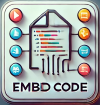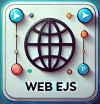Translations
| Code | Language | Translator | Run | |
|---|---|---|---|---|
 |
||||
Credits

MarinahToh; lookang; Winnie Liang
Credits
Credits
 ['MarinahToh', 'lookang', 'Winnie Liang']
['MarinahToh', 'lookang', 'Winnie Liang']
Sample Learning Goals
 |
| https://sg.iwant2study.org/ospsg/index.php/interactive-resources/chemistry/1214-source"}">https://sg.iwant2study.org/ospsg/index.php/interactive-resources/chemistry/1214-source |
Project 2b: webEJS workshop Game for Chemistry Ions matching Chemical Name by Winnie
Educational Simulation for Chemistry Learning Using Easy JavaScript Simulation Toolkit
This educational simulation, developed using the Easy JavaScript Simulation (EJS) toolkit, offers an engaging and interactive way for students to learn about chemical ions and their corresponding chemical formulas. Here's an overview of the key features that make this simulation an effective educational tool:
Key Features
-
Interactive Learning Environment: The simulation provides a vibrant and interactive environment where students can match ions to their corresponding chemical formulas. This hands-on approach enhances the learning experience by allowing students to actively engage with the content.
-
Visual Appeal: The colorful and animated bees representing different ions make the learning process enjoyable. The background featuring a picturesque landscape adds to the visual appeal, making the simulation inviting for users of all ages.
-
Immediate Feedback: As students match the ions to their chemical formulas, they receive immediate feedback. This helps in reinforcing correct answers and provides an opportunity for students to learn from their mistakes in real-time.
-
Score Tracking: The simulation includes a scoring system that tracks the user's performance. The current score and total score are displayed prominently, motivating students to improve their scores and providing a measure of their progress.
-
Variety of Ions: The simulation covers a wide range of ions, including Bismuth(III), Nickel(III), Vanadium(II), and others. This variety ensures comprehensive coverage of the topic, helping students to familiarize themselves with different ions and their chemical formulas.
-
User-Friendly Controls: The simulation features intuitive controls, such as "Play," "Next," and "Reset" buttons, making it easy for students to navigate through different levels or reset their progress if needed.
Data Set Generation and Matching Logic
The data set for the ions and their chemical formulas was generated using ChatGPT, ensuring a diverse and extensive array of ions for students to match. Here’s a brief overview of how the matching logic works:
-
Data Structure: The data set is structured in arrays where each ion is paired with its corresponding chemical formula. This structure allows for efficient matching and easy expansion of the data set.
-
Matching Algorithm: When a student selects an ion, the simulation checks the selected ion against the available chemical formulas. If the match is correct, the ion is placed in the correct position, and the score is updated. Incorrect matches prompt the student to try again, reinforcing learning through repetition.
-
Dynamic Content: The simulation dynamically generates new sets of ions and chemical formulas for each session, ensuring that students encounter different combinations each time they use the simulation. This variety helps in reinforcing the learning objectives and prevents memorization without understanding.
Conclusion
This chemistry learning simulation is a testament to the capabilities of the Easy JavaScript Simulation toolkit in creating educational tools that are both effective and engaging. By combining visual appeal, interactive elements, and immediate feedback, the simulation provides a robust learning experience that can significantly enhance students' understanding of chemical ions and their formulas.
For Teachers
20240718-24 Web EJS beta Workshop by Francisco Esquembre and Félix J. García Clemente supported by MOE CPDD1 Registration for Web EJS Workshop (18-24 July 2024)
Venue: MOEHQ Buona Vista, B3-02 (18 July) P2-01-02 (19,22,23,24 July) or
Contact organisers at This email address is being protected from spambots. You need JavaScript enabled to view it.
Research
[text]
Video
[text]
Version:
- https://weelookang.blogspot.com/2024/03/20240718-24-web-ejs-beta-workshop-by.html?m=1
- https://weelookang.blogspot.com/2024/07/project-2b-webejs-workshop-game-for.html
Other Resources
[text]
end faq
{accordionfaq faqid=accordion4 faqclass="lightnessfaq defaulticon headerbackground headerborder contentbackground contentborder round5"}
- Details
- Written by Loo Kang Wee
- Parent Category: Interactive Resources
- Category: Chemistry
- Hits: 992








